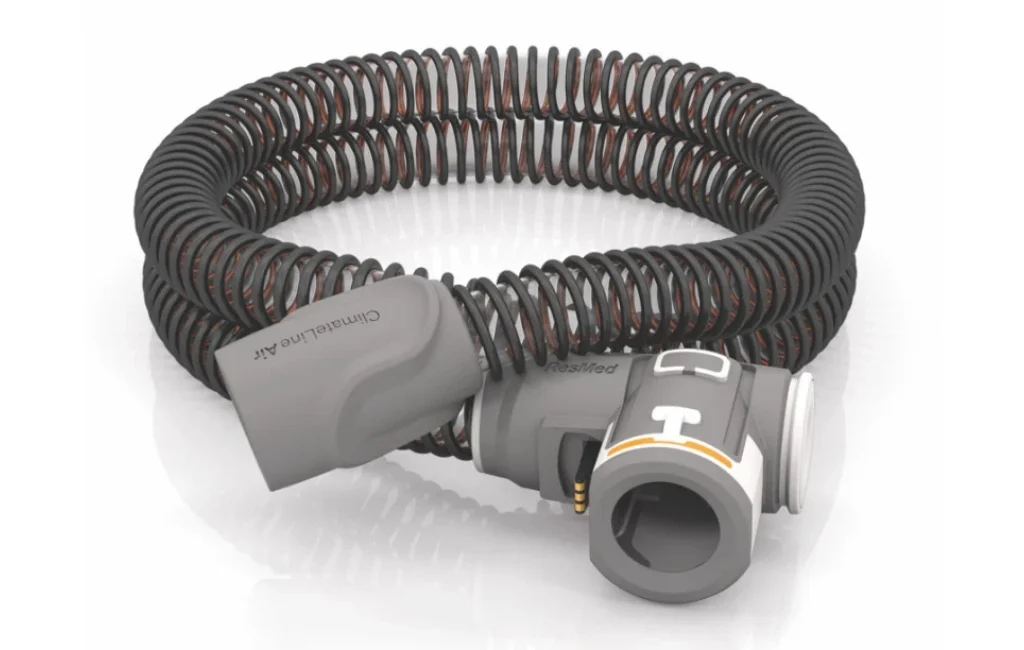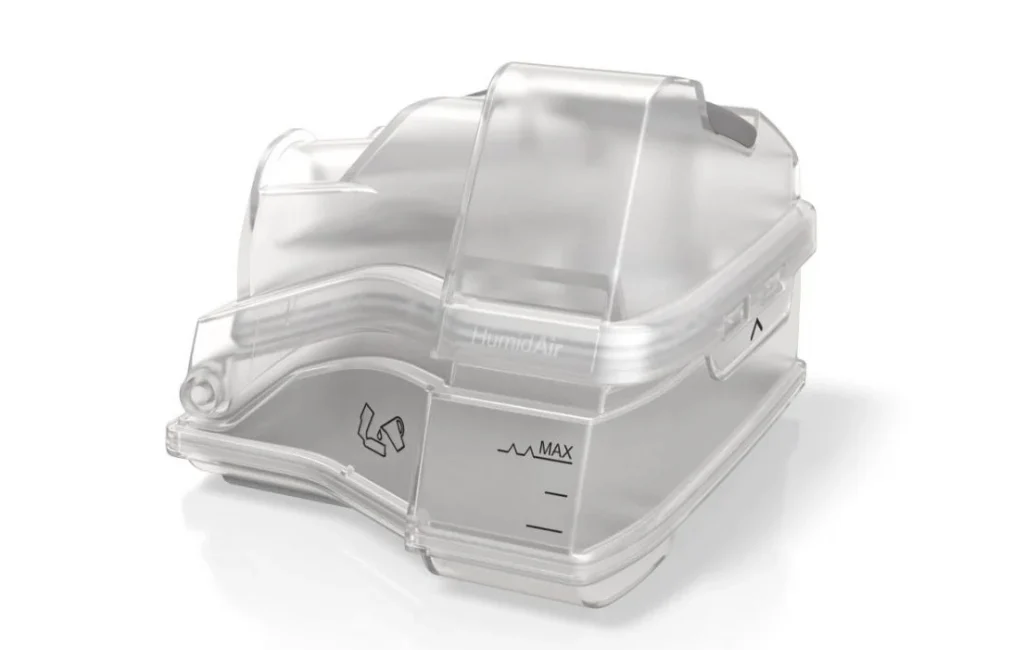A great place to start is with humidification. Humidification adds moisture and warms the pressurized air you are receiving from your machine, reducing the chance of dryness.
If you have humidification but still have a dry mouth, it’s possible your mask is leaking. Checking the mask fit and headgear strap tightness is a great way to try and reduce the leak. Or, it may be time to replace your mask with a new one. You can check your sleep data from the myAir™ app to see if you if are experiencing leak. You can also talk to your healthcare or equipment provider and ask if they can check your sleep data for information about leaks.
If neither humidification nor leakage is the problem, you might have the wrong mask for your breathing habits. If you breathe through your mouth and are using a nasal mask or nasal pillows, not only are you likely not getting sufficient pressure to reduce your sleep apnea, but the majority of your air is probably escaping through your mouth, drying it out.
If you breathe through your mouth when you sleep, these full face masks may be best for you:
AirFit ™ F20
AirTouch ™ F20





.webp)
